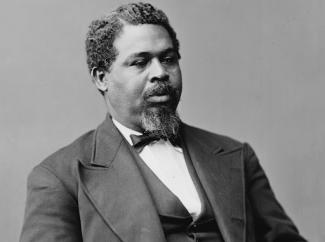
The sun hadn't yet risen above the horizon on the foggy morning of May 13th, 1862. Skulking to the harbor, Robert Smalls and the Black enslaved crew of the Planter, a Confederate cargo ship, stole away. They had a mission.
Having navigated the Planter for weeks, Smalls knew the Confederate routes along South Carolina's coastline. The cover of darkness allowed him to rendezvous at a nearby dock where his wife, four-year-old daughter, and infant son were waiting to join him.
But the real test was yet to come.
The Planter was a noisy vessel. Smalls knew that Confederate checkpoints along the coast would hear it, so he memorized their sentry signals. Even once they were out of Confederate waters, they still weren't safe.
The Union Army was known to fire at Confederate ships on site. Smalls threw up the white flags of surrender and pulled up alongside the Onward, one of the Union's mightiest ships. Smalls had managed to do the impossible. He, his family, and the crew of the Planter were free.
Sometimes, it's best to move in silence. Hundreds of years after pioneers like Smalls, we are still organizing in silence and rising to create a movement. But just because we may be quiet doesn't mean that change isn't coming or we're not on the move.